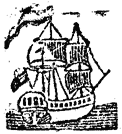David Library’s “Letters from the Front”
The David Library of the American Revolution in Pennsylvania is blogging some items from its collection transcribed and collected as “Letters from the Front.” (Not all items are tagged that way yet, hence the list below.)
Several of the documents so far are letters from Col. Jedidiah Huntington (1743-1818, shown here courtesy of the Huntington Family Association) to his father, Connecticut militia general Jabez Huntington, during the siege of Boston. But there are some other familiar names as well.
- Introduction from scholar Will Tatum.
- Dr. Samuel Adams to Samuel Adams, 7 Feb 1775.
- William Coit on Bunker Hull, June 1775.
- William Tudor to Stephen Collins, 27 Sept 1775.
- Charles Lee to Alexander MacDougall, 26 Oct 1775.
- Huntington, 11 Nov 1775.
- Isaac Sears to the Connecticut delegates to the Congress, 28 Nov 1775.
- Huntington, 4 Dec 1775.
- Huntington, 25 Dec 1775.
- Huntington, 18 Jan 1776.
- Dr. Samuel Adams to Sally Preston, 10 Mar 1776.
The Dr. Samuel Adams one who wrote the two letters listed above was born in Connecticut in 1745 and practiced on Cape Cod. He joined the provincial army as surgeon for Col. John Fellows’s regiment, and in 1776 was assigned to the 18th Continental under Col. Edmund Phinney. He was a widower, having lost his wife and their first child in 1765. Sally Preston became his second wife.
The David Library will undoubtedly post more letters, following the front as it moves away from Boston.


